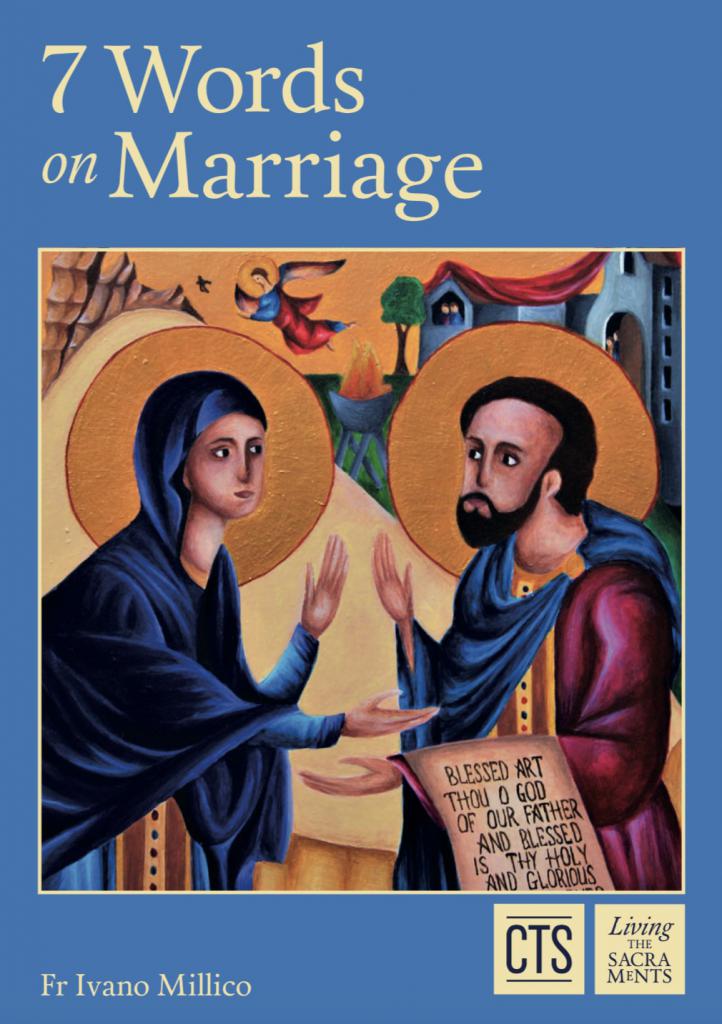by Fr Ivano Millico
‘Marriage is the most beautiful thing God has created.’ Pope Francis pronounced these words on 1st October 2016 while on an official visit to Georgia. Virtually the whole Catholic population, less than one per cent, had gathered in the Church of the Assumption of Our Lady in Tbilisi to dialogue with the Holy Father. Amongst them a married couple raised a question, asking for help: is it possible to believe in marriage? Can we still have faith in marriage? What follows are ‘seven words’ on marriage, your marriage, along seven chapters.
They are mainly words pronounced on your wedding day, taken from the Rite of Marriage; words found on the lips of married couples in the Bible; words of poetry and drama; words of advice from priests, Popes and even saints!
I take Thee …
At the centre of every marriage are these words: ‘I take Thee’. What do they mean?
In the Latin Rite of Marriage, the expression used for ‘I take’ is ‘accipio’. The Latin verb ‘accipere’ means much more than ‘to take’, it means: ‘to receive’, ‘to welcome’. When a man and a woman get married, one does not ‘take’ the other, but ‘receives’ another. The ‘DNA’ of marriage is a DNA of welcoming, openness and communion.
‘I take Thee’ means ‘I welcome Thee’. ‘When we hear this word,’ notes Pope Francis ‘we immediately think of something to do. But in reality welcoming is a more profound disposition: it requires not only making room for someone, but being a welcoming, available person, accustomed to giving oneself to others. As God does for us, so we do for others. Welcoming means putting things into perspective, setting right my way of thinking, understanding that life is not my private property and that time does not belong to me. It is a gradual parting from all that is mine: my time, my rest, my rights, my plans, my agenda. One who welcomes gives up the ‘me’ and allows ‘you’ and ‘us’ to enter his life.’ (Address to the Vincentian family on the fourth centenary of the charism, St Peter’s Square, 14th October 2017)
To marry is to ‘receive’ another person as he is, as she is, into your own life. It is not about trying to change that person so to fit into your ideas or to suit you according to your expectations, but it is about loving that person, to say ‘yes’ to that person. In this sense, marriage is a real personal transformation from ‘me’ to ‘you’ and ‘us’. In marriage one ceases to be an individual and becomes a person, that is, a sincere and definite gift of oneself to another. In fact marriage proves to be ‘the most effective antidote to unbridled individualism’. (Pope Francis, Video message to the participants of the Third International Symposium on the Apostolic Exhortation Amoris Laetitia convoked by the Italian Episcopal Conference’s Office for the Pastoral Care of Families) And all of this is possible because at the centre of Christian marriage is the person of Jesus Christ, the loving gift of himself.
Our air, our ‘human environment’ is corrupted by a real form of ‘pollution’ that corrodes souls and confounds minds and hearts, producing false illusions. This pollution is not mere selfishness or the old narcissism, it is much more, it is a real form of egolatry. Addressing the Pontifical Academy for Life, Pope Francis spoke, as no one else before him, about this sickening and polluting air we breathe every day:
Human beings seem now to find themselves at a special juncture in their history, in unchartered territory, as they deal with questions both old and new regarding the meaning of human life, its origin and destiny.
The key feature of this moment is, in a word, the rapid spread of a culture obsessively centred on the mastery of human beings - individually and as a species - over reality. Some have even spoken of an egolatry, a worship of the self, on whose altar everything is sacrificed, even the most cherished human affections. This approach is far from harmless, for it induces people to gaze constantly in the mirror, to the point of being unable to turn their eyes away from themselves and towards others and the larger world. The spread of this approach has extremely grave effects on every affection and relationship in life. (Address to the General Assembly of the Pontifical Academy for Life, 5th October 2017)
Christian marriage, the covenant between man and woman in marriage and family, not only is the antidote against this pollution but the place where the real meaning of being man and woman can be preserved. This meaning is connected with the capacity for communion of man ‘who is not just something, but someone. He is capable of self-knowledge, of self-possession and of freely giving himself and entering into communion with other persons’. (Catechism of the Catholic Church 357, cf Pope Francis, Laudato Si’ 65) This ‘capacity’ is part of the grace of the Sacrament of Marriage, capacity to make space for another and welcome this person in my life.
Fr Ivano Millico is Assistant Priest at Holy Trinity Brook Green.
This article is an extract from his CTS booklet ‘7 Words on Marriage’ and is printed with kind permission from CTS.




